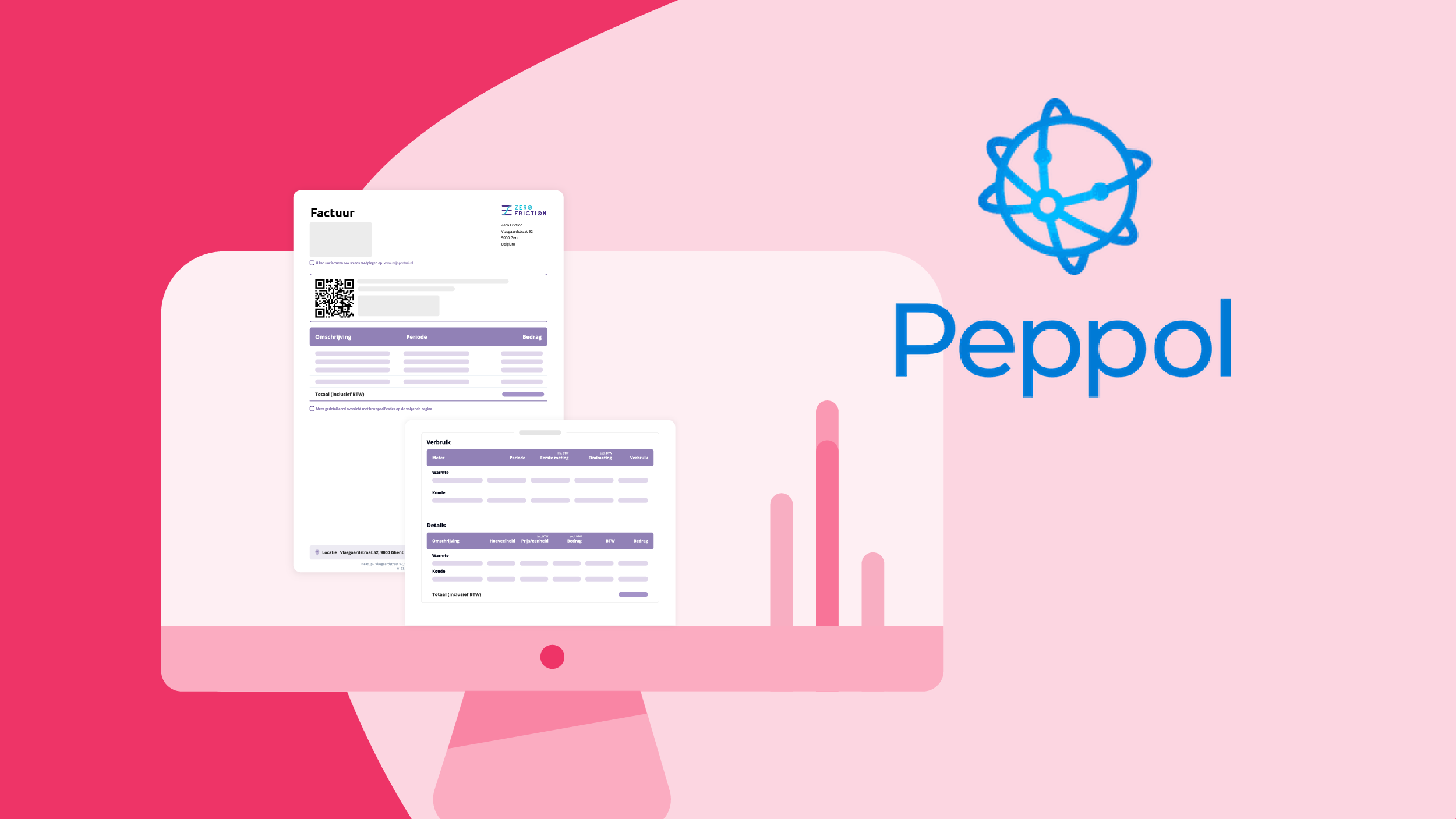From heat meter to payment: what happens to end user data?
Heat networks play a major role for sustainable energy. From meter to payment, data is critical to daily operations. Discover what happens to it after collection.

Heating networks are a key element in the shift towards more sustainable energy sources. A crucial part of this process involves collecting data from end users. This data, generated from the moment heat is distributed from the network to individual users, plays a vital role in managing the network and the billing process. But what actually happens to this data once it's collected?
The importance of data for improved customer satisfaction
End user data is invaluable for heating network operators and heat suppliers. It provides insights into individual energy consumption, helps detect leaks or faults in the network, and allows companies to issue accurate bills based on actual usage. This data is also incredibly useful for users, enabling them to monitor and optimize their energy consumption, potentially saving money and reducing their carbon footprint.
Moreover, there is a strong link between data quality and customer satisfaction. Accurate and reliable data ensures transparency and trust between the supplier and the end user, leading to fewer complaints and higher customer satisfaction. Therefore, it's crucial not to cut corners on the quality of meters and data communication. Investing in high-quality metering equipment and reliable data communication systems is essential to fully leverage the benefits of data and ensure high customer satisfaction.
The data journey: from meter to payment
- Collection: The data journey begins with collection. This typically involves smart meters installed at individual user locations. These meters continuously record energy consumption and regularly send this data back to the heat suppliers' central system.
- Storage and processing: Once collected, the data is stored in secure databases. Here, it's processed and analyzed to gain insights into user energy consumption patterns and to detect any anomalies that might indicate network issues.
- Network management: The collected data is used by heat suppliers to efficiently manage the heating network. This includes planning maintenance work, optimizing heat production and distribution, and quickly responding to any faults or outages.
- Billing: Another critical use of the data is for billing. Based on the recorded energy consumption data, heat suppliers can generate accurate invoices for individual users, ensuring fair and transparent pricing.

Protecting privacy and security
When collecting and processing data, it's essential to protect the privacy and security of users. Strict regulations, such as the General Data Protection Regulation (GDPR), govern how personal data is handled and protected. Network operators and energy companies must ensure that collected data is securely stored and used only for authorized purposes.
Additionally, ISO 27001, the international standard for information security management, plays a crucial role in ensuring the safety of sensitive data. This standard specifies requirements for establishing, implementing, maintaining, and continually improving an Information Security Management System (ISMS). By adhering to ISO 27001, organizations demonstrate a systematic approach to managing sensitive business information, ensuring the confidentiality, integrity, and availability of data. This not only helps protect against data breaches and other security incidents but also strengthens customer and stakeholder trust in the organization.
Conclusion
The journey of data in heating networks is a crucial component of the efficient management and operation of these systems. From the moment of collection to its use for network management and billing, data plays a central role in ensuring the performance, reliability, and sustainability of heating networks. It's vital that this data is handled securely and responsibly, with respect for the privacy and security of end users.
You might also like...

Peppol e-invoicing: what is it, who is it for, and how does Zero Friction make it super easy-breezy?
Digitalization in the energy world is moving at lightning speed. More and more heat suppliers are switching to e-invoicing via Peppol. But… what exactly is Peppol? And how do we make sure you hardly need to worry about it? In this blog, we'll explain it simply. 😉

Zero Friction & Chorus Pro: ready for B2B electronic invoicing requirement 2026
Zero Friction helps heat suppliers to invoice effortlessly, including to public administrations, and with the upcoming legislative changes, this help becomes even more valuable. Below, you'll discover what changes from 2026, why it's important for heat service providers, and how Zero Friction helps you stay compliant while achieving significant operational gains.

District heating: the key to a climate-neutral Europe
Europe has set itself a bold challenge: to be climate-neutral by 2050. This isn’t just an ambition, it’s written into the European Climate Law. And the short-term goals are just as ambitious: a 55% reduction in greenhouse gas emissions by 2030, as part of the Fit for 55 package.

